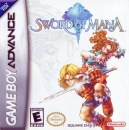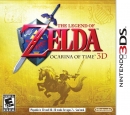I'm going to be vague here, as not to spoil it for anyone who hasn't played it yet, but the ones who have should recognise the piece I'm talking about:
About halfway through FF6, there is a small branch in the game, in which one path causes a main character (non playable) to die, depending on your actions. This has some follow up consequences to a playable character. To me, that was my saddest moment in an RPG.
Now, I played FF6 through the old piggyback conversion method for SNES cartridges, and since I live in a PAL region, certain aspects of the game were inaccessible, particularly the items screen in certain areas. The point is, the branch that determined this NPC's fate usually involved checking the item screen, which I couldn't access, so I thought it was a linear path, and there was no way to save him.
I've played FF7 too, but Aerith's death did not move me as much as this for a few reasons:
1. The character in question died slowly, and during the process, said a lot of depressing, negative things as their condition grew worse. Aerith's death was just sudden, and it didn't seem to soak in as effectively.
2. The follow up actions from the playable character after the NPC's death seemed to be a lot more plausible. There was a sense of hopelessness felt from this character when it happens (environment needed to be taken into account, too).
3. I know a few will disagree with me on this one, but the music played a role into it too. The music for the scene in FF6 at that moment was a lovely mix, in which the samples seemed to merge together nicely. When the theme of Aeris kicked in at that sad point, my initial cringe was, "There's that goddamn blaring trumpet in the background of the tune again"
Call me a sadist, but even now that I have local versions where I can see the item screen and potentially save this NPC, I still choose to let him die, just for the dramatic after-effect that entails.
Existing User Log In
New User Registration
Register for a free account to gain full access to the VGChartz Network and join our thriving community.































































